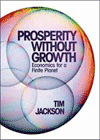Threatened Identities and Resistance to Change (1): Meat-eating
Overall aims
The overall aim of this project was to test one of the key hypotheses in the RESOLVE work programme, namely that pro-environmental lifestyle changes pose a threat to people’s sense of identity and hence engender resistance to change. This early study aimed to test the ‘threatened identity’ hypothesis in the context of meat consumption.
Context
Since modern identity is closely linked to material possessions and material practices and since our identities are central to our psychological health, threats to identity will trigger psychological processes aimed at reducing threat. These processes may result in resistance to change. This study aimed to test this possibility in the context of meat-eating behaviours. Meat consumption is inherently more carbon intensive than other forms of food consumption and has risen considerably over the past decades. At the same time, an increasing body of research pinpoints to the potential health risks associated with eating meat, as well as the environmental implications of meat production and consumption. The aim of this research was to find out whether people’s responses to information campaigns aimed at changing meat-eating behaviour depended on their self-identification as meat-eaters or not.
Research questions and methods
The study examined the role of the identity concept in relation to meat consumption in two ways. First, by looking at the factors associated with attitudes towards eating meat; and second, by examining how people respond to information about meat consumption that is matched or mismatched to people’s levels of identification with being a meat eater. It was hypothesised that information that threatens identity is perceived as less persuasive than information that does not. In addition information that threatens identity may result into resistance to change; e.g., those who identify strongly with being a meat eater will not find the anti-meat message persuasive and reading such a message will not change their attitude in the direction of vegetarianism, but may even strengthen their pro-meat attitude (resistance).
A questionnaire study was conducted (N = 262), using a 2x2 between-subjects design. Respondents either read a message about meat consumption that matched their identity as a meat eater or as a non-eater of meat. Subsequently, respondents were asked to evaluate the information in terms of its persuasiveness, and they were asked about their attitude towards eating meat.
Results
The results indicate that attitudes towards eating meat were most strongly related to identity, in that respondents who more strongly identified with being a meat eater also expressed more favourable attitudes towards eating meat. Health identity was positively related to attitudes towards eating meat too. Additionally, respondents tended to evaluate information that matched their self-concept (identification with being a meat eater) as more positively than when it was not matched. But no attitude change or resistance to change was found. It is possible that the experiment was too short to instigate such an attitude change.
Implications
The findings have implications for persuasive communication in relation to meat consumption which may better focus on health concerns than environmental concerns. It also suggests that persuasive messages may be least effective for those who most need to change: for example, those who eat a lot of meat and identify strongly with being a meat eater are least likely to find an anti-meat message convincing.
Output
Abrahamse, W, B Gatersleben and D Uzzell 2009. Encouraging sustainable food consumption: the role of (threatened) identity. RESOLVE Working Paper Series 04-09. Guildford: University of Surrey.





